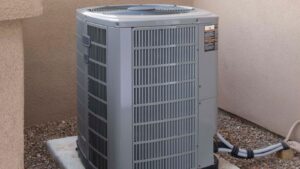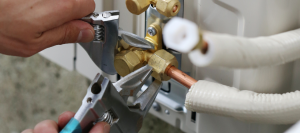
Upgrading your electrical panel is key, especially for homes built before 1980. Modern homes need more power for all their devices, and old panels can’t keep up. An upgrade boosts safety, lowering the risk of overloads and electrical fires. The upgrade also fits modern needs. It allows for more appliances and gadgets, handling their higher power requirements. This makes your home safer and more suitable for today’s electronic-heavy lifestyle.
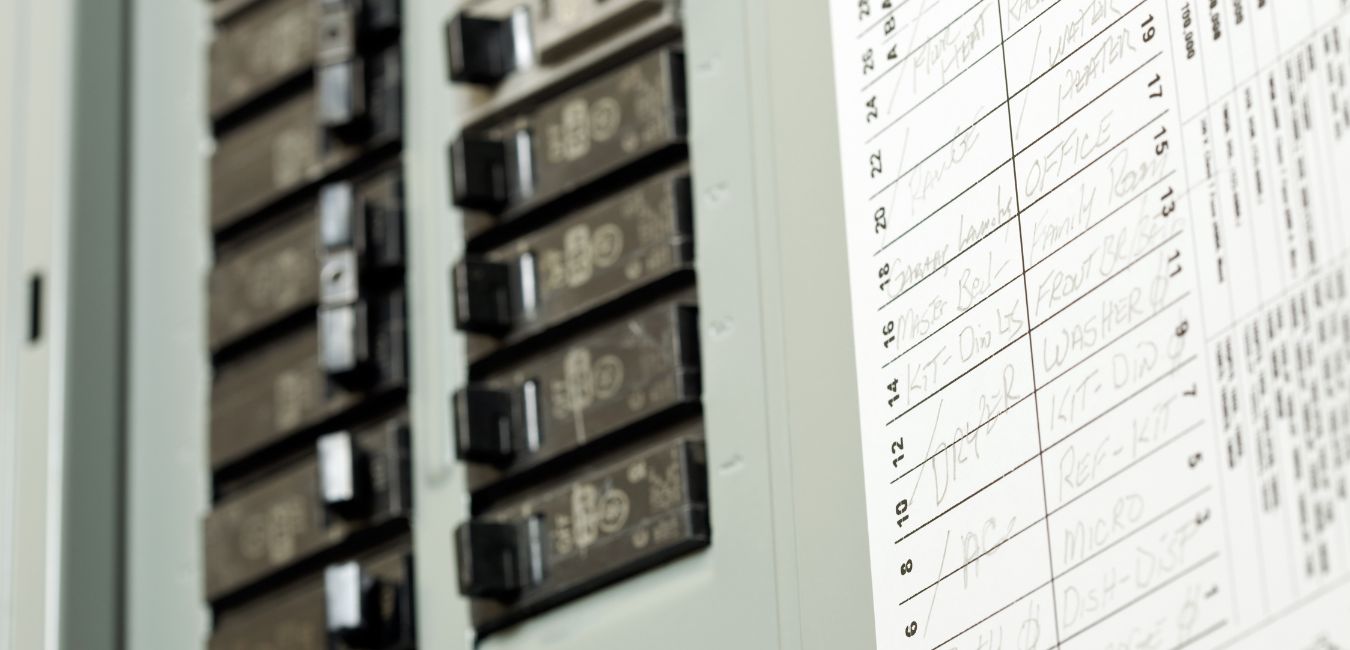
If your home is more than 40 years old, it’s probably time for an upgrade. Why? Well, older homes were built with electrical panels that just aren’t cut out for today’s gadgets and appliances. Using these old panels with modern electronics can be risky. You might face electrical failures, or things might just run slower and less efficiently.
Upgrading is not just about keeping up with the times. It’s about safety, too. With a new electrical system, you’ll reduce risks like overheating, electrical shock, or even fire. It’s a serious upgrade for your home’s safety.
Now, before you decide, it’s important to get a professional electrician to take a look. They can check out your current panel and see if it’s up to handling the load of new devices or services you might want to add. They can also give you an estimate for the upgrade.
Is your circuit breaker tripping all of the time? Let’s look into what that might it means and why it’s important to you.
If your circuit breaker keeps tripping, it’s a pretty clear sign that your home’s electrical panel might need an update. Why is this a big deal? Well, as we pile on more electrical gadgets and appliances in our homes, our electrical systems are pushed harder. An old panel might not be up to the task, leading to overloads. In the worst-case scenario, this could even lead to a fire – something we all want to avoid.
Now, the good news. An electrician is your go-to person for this. They can help you figure out the best way to upgrade your system. And guess what? Your local utility company might even offer deals or incentives for upgrading to more energy-efficient equipment. This is a win-win because it not only saves you money over time but it’s also better for our planet. Upgrading means less energy wasted and fewer greenhouse gases – and that’s something to feel good about.
If you’ve got fuses in your house, it’s time to perk up your ears. See, fuses aren’t as reliable as circuit breakers. During those times when electricity usage hits its peak, fuses can lead to some risky situations like overloading or even fires. That’s the last thing we want, right?
But it’s not just about safety. Think about all the new electronics we buy. Today’s gadgets are way more power-hungry than the old ones. Upgrading your electrical panel means you’re ready for all that new tech without straining your system. And here’s a nice perk: an upgraded system often uses less energy and has better wiring efficiency. That means saving money in the long run. Who doesn’t like saving money?
So, what should you do? It’s simple. Speak with a professional electrician. They’ll take a look at your home’s specific needs and help you figure out if an upgrade is the right move.
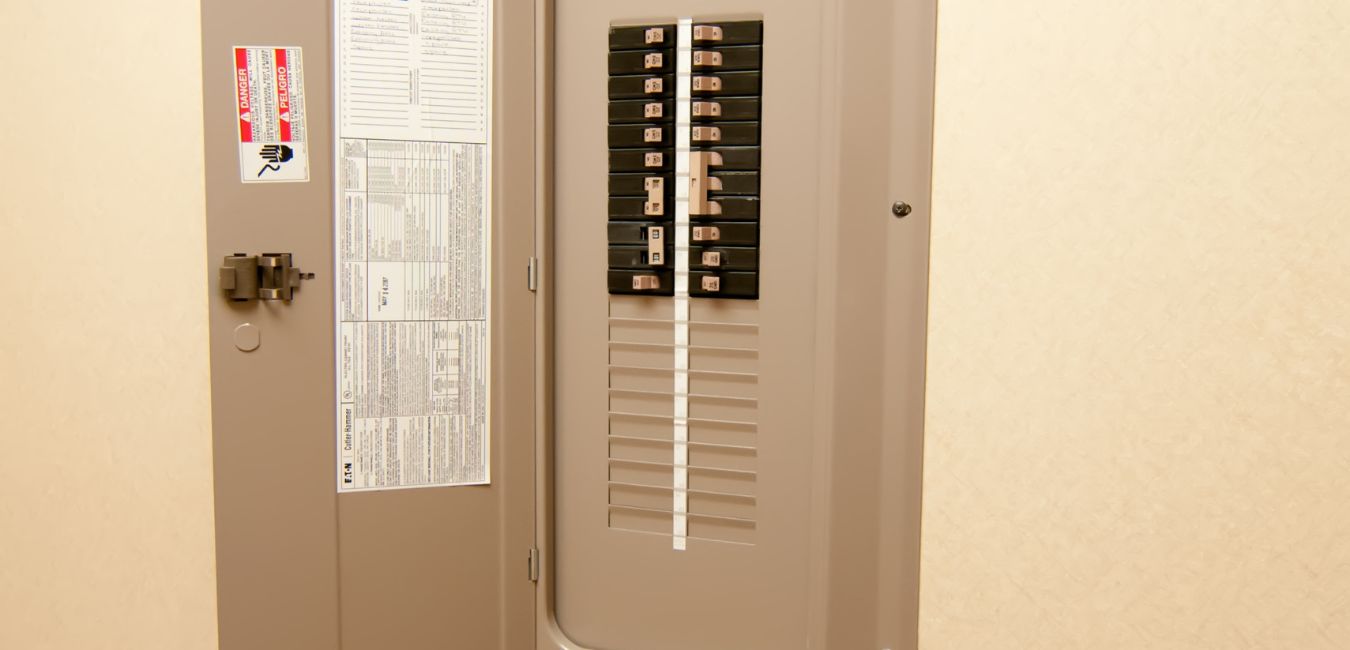
If you ever see sparks or smell something burning from it, that’s a big red flag. It probably means your panel needs an upgrade, pronto. Today’s electrical panels are way safer with features like modern circuit breakers and better wiring. These are designed to prevent exactly these kinds of scary situations.
Upgrading isn’t just about avoiding sparks and smells, though. It also means more outlets for all your stuff. Think about everything that needs power in your home: air conditioners, computers, lights, etc. A modern panel can handle all of that much better.
So, what should you do if you see sparks or smell burning? Call an electrician right away!
If you’re noticing flickering or dimming lights at home, it’s not just annoying, it actually could be a sign that your electrical panel needs an upgrade. You might think this sounds like a big deal, but fixing it is simpler than you’d expect.
Here’s the thing: a new and improved panel will sort out those light issues in no time. And it’s not just about the lights – all your electrical appliances will thank you too. Everything just works better with a panel that’s up to date.
But wait, there’s more. Upgrading your panel isn’t just a quick fix for now; it’s a smart move for the future too. How? Well, a modern panel is more energy-efficient, which means you can save money on your electric bills in the long run.
Sky-high electric bills are more than just a hit to your wallet; it could be a sign that your home needs an electrical panel upgrade. Here’s why that’s important.

Thinking about selling your home? Consider upgrading your electrical panel. It’s not just a fix-it project; it’s an investment that could really pay off. Let’s break it down –
Think about the long-term. An upgraded panel safeguards your home’s electrical integrity for years. So even if selling isn’t on the horizon just yet, you’re setting up your home (and its future owners) for success.
Upgrading your home’s electrical panel? Great decision! It’s not a DIY job though, so let’s walk through the steps you should follow, keeping it simple and clear.
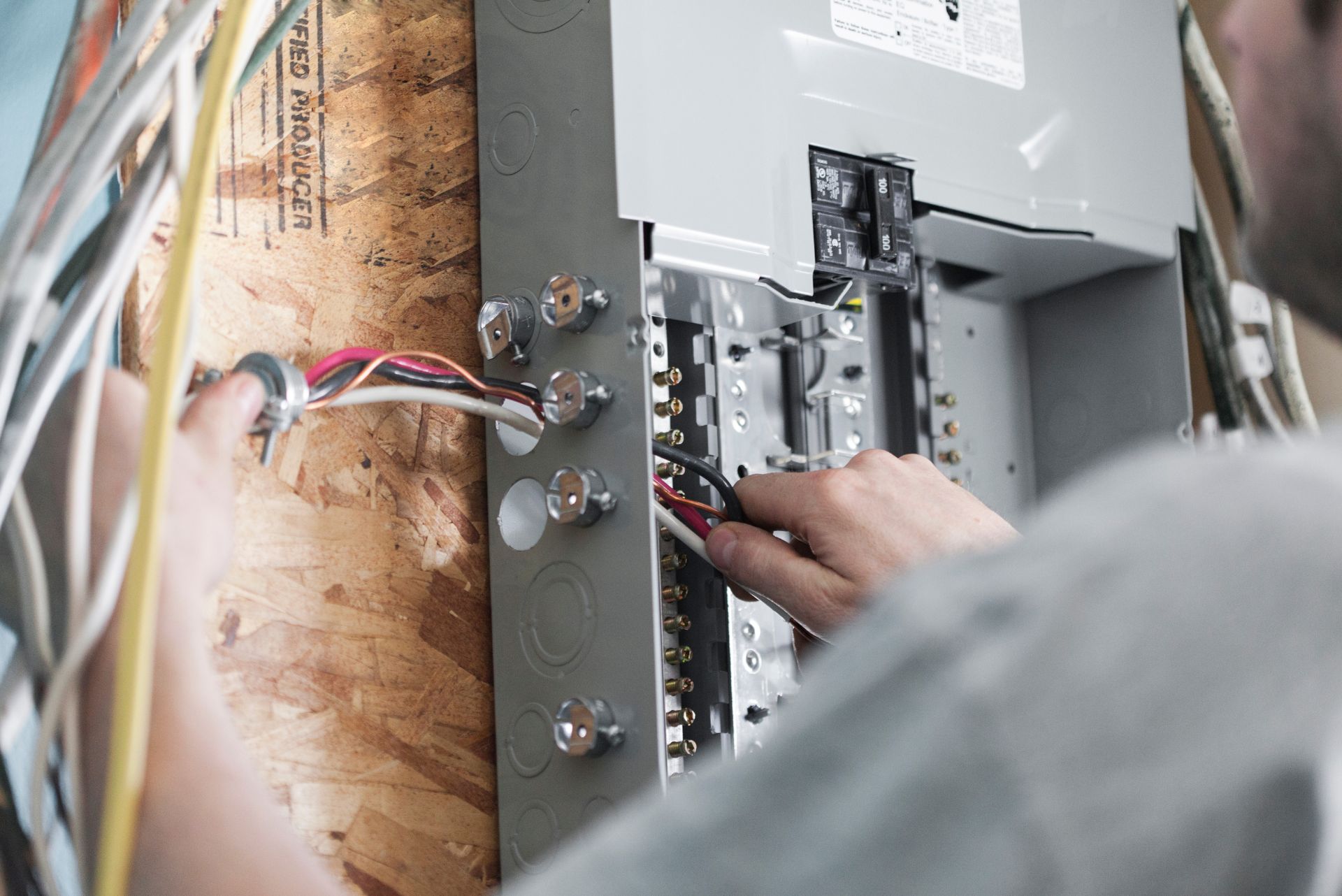
First things first, get a professional electrician on board. They know their stuff, especially about local regulations and safety rules. It’s all about making sure the upgrade is done right and safely.
Before anything starts, the power needs to be turned off at your circuit breaker or fuse box. This is a crucial step to avoid any accidents. Also, make sure all the tools needed for the job are ready. Planning ahead like this saves time and potential headaches.
Now, let the electrician do their thing. They’ll check out your current wiring, switches, breakers, everything. This step is all about figuring out what needs to be fixed or replaced to make your system better and safer.
After the inspection, it’s time for the new circuit breakers. The electrician will pick the right ones for your home and install them. It’s important each breaker is the correct wattage (usually 15 or 20 amps) and clearly labeled. This avoids overloading. Also, some older homes might need special wiring, so that’s where the electrician’s expertise really comes in handy.
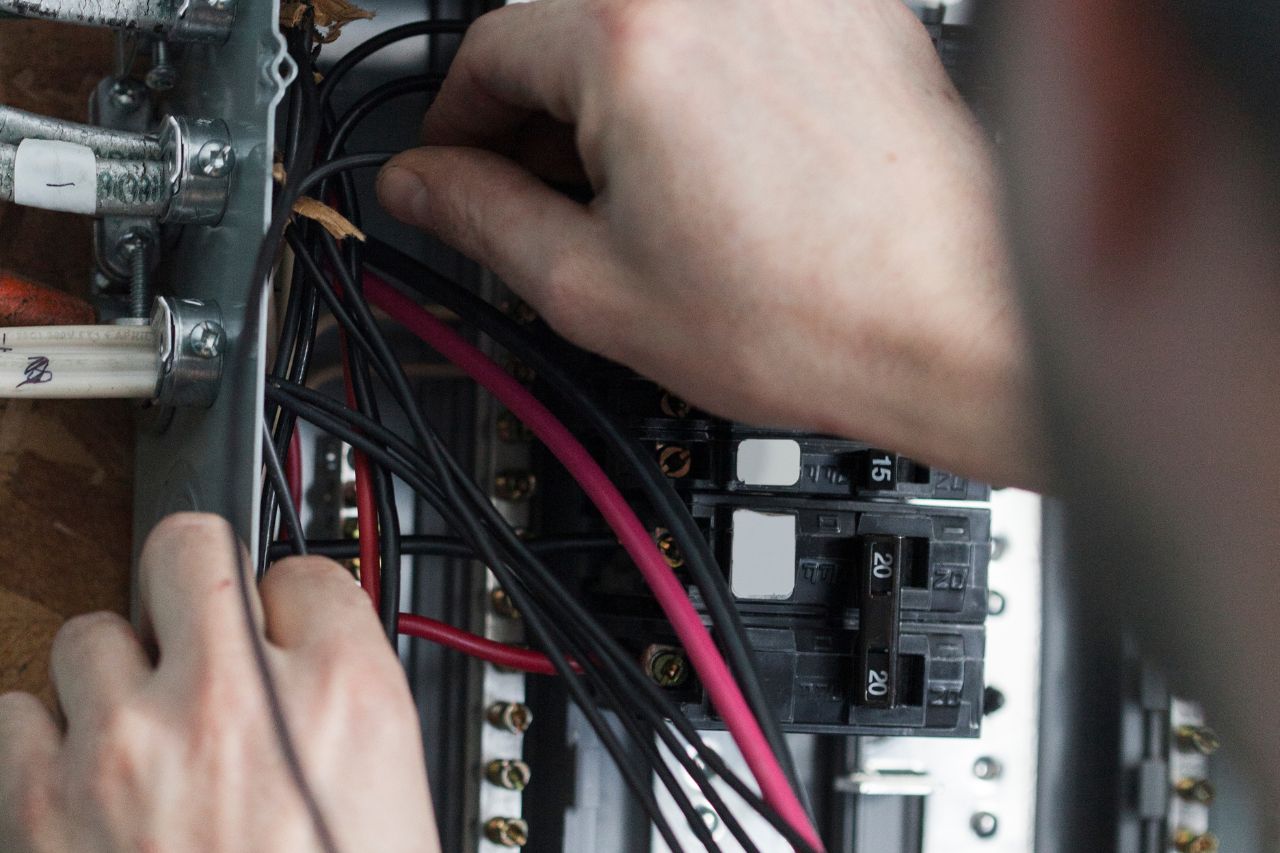
Can you DIY an electrical panel upgrade? It mostly depends on your skills. But, usually, it’s way safer to get a professional electrician. Why? Because upgrading an electrical panel is no small task. You’re dealing with high voltage, which can be risky if you’re not experienced.
You’d have to turn off the power to your house, mess around with wires, and maybe even change circuits or add new breakers. It’s very technical to say the least.
If you’re not totally confident in what you’re doing or lack the necessary skills, it’s smarter to hire an experienced electrician. They’ll know exactly how to assess your current setup and figure out the best way to upgrade your panel safely and up to code.
Upgrading your home’s electrical panel might seem overwhelming, but understanding its importance simplifies the process. Upgrading is key for safety, preventing fire risks from old wiring or overloaded circuits. Plus, it ensures you have enough outlets for all your devices or appliances.
For those homeowners in Metro Detroit with dated electrical systems, reach out to Flo-Aire Heating, Cooling & Electrical, our licensed Electricians are ready to tackle your home’s electrical problems quickly and reliably.
When you renovate your home, the electrical demand often increases. An old panel might struggle with this extra load. Upgrading it ensures your home’s electrical system can safely keep up.
Now, about adding new appliances - like a fancy air conditioner or a high-tech clothes dryer. These guys need more power. If your panel's outdated, it might not handle the extra demand. An upgrade can make sure everything runs smoothly without any hiccups.
Depending on where you live and how complex your upgrade is, the law might require you to get one. Skipping this step? Not a good idea. It could land you in trouble with fines or, worse, risk your safety.
But, it's not just about following the rules. Getting a permit is a smart move. It ensures your electrical system is up to par, meeting all the safety codes and standards. So, before you dive into the upgrade, do a bit of homework. Check out what permits you need and how to get them. It's a crucial step for a smooth and safe upgrade!
Wondering if your electrical panel is outdated? Check a few key things. First, consider its age. Panels over 25 years old often need replacing. Also, pay attention to frequent problems. If your breakers trip often or fuses blow, it's a sign the panel can't keep up.
Look out for flickering lights and physical damage too. Flickering can mean your panel struggles with high demand from appliances. Rust, corrosion, or any sign of heat on the panel spell trouble.
If your home still uses a fuse box, it's time to switch to circuit breakers. They're safer and more efficient for modern electrical needs. If these signs are familiar, talk to a professional electrician about an upgrade. It’s essential for safety and managing today’s power needs.
This is not a one-size-fits-all answer, as several things can change the price. Things like the size of the panel you need, labor costs, and any extra upgrades play a part. Typically, panel prices vary a lot, ranging from around $500 to more than $4000. It really depends on how complex the job is.
For a ballpark figure, let's say you're in Michigan and need to replace a standard 150-amp breaker box. On average, you're looking at about $1750, covering both parts and labor. But remember, messing with electrical panels is not DIY-friendly – it's risky and needs serious know-how. Hiring a professional electrician is the way to go.
Before you start, do your homework. Look up local electricians, compare their quotes, and see who offers the best deal. It's all about getting quality work without breaking the bank.
Wondering if your electrical panel is outdated? Check a few key things. First, consider its age. Panels over 25 years old often need replacing. Also, pay attention to frequent problems. If your breakers trip often or fuses blow, it's a sign the panel can't keep up.
When it comes to homeowners insurance and electrical panel replacement, it varies. Typically, insurance covers the cost if the panel is damaged due to a covered peril. These perils often include unexpected events like fires, storms, or vandalism. However, if the panel needs replacing due to age or regular wear and tear, insurance usually won't cover it.
Also, keep in mind policy details differ. Some insurers may offer additional coverage options for older homes or specific electrical upgrades. It's always best to check with your insurance provider. They can clarify what's covered under your policy and any additional coverage you might need. Remember, staying proactive with electrical maintenance can prevent issues that insurance won't cover.
Yes, upgrading your electrical panel doesn't always require rewiring the entire house. This process typically involves just replacing the old panel with a new one, suitable for current electrical demands.
However, it's essential to have a professional electrician assess your home's wiring. They can determine if the existing wiring is adequate and safe for use with the new panel. A complete house rewiring is not a standard requirement for a panel upgrade.
Upgrading your electrical panel to 200 amps? The first hire a skilled electrician. They'll take a good look at your current setup to see if a 200-amp panel is the right fit for your home. This isn't just about swapping out panels; it's about making sure everything's up to snuff and safe.
Your electrician will handle the heavy lifting, replacing the old panel with a new one. They'll also make sure all the wiring and related bits are adjusted for the higher capacity. It's important to have a pro to do this to meet safety standards and local regulations. Plus, it's a smart move to keep things running smoothly at home.
Yes. If upgrading your electrical panel isn't feasible or necessary, there are a couple of alternatives to consider.
First, let's talk about sub-panels. Adding a sub-panel is a great solution if your main panel is near capacity but still in good shape. It's like giving your electrical system an additional resource to handle more circuits. This can be especially helpful if you're adding new rooms or appliances and don't need a full upgrade.
Another option is circuit breakers. Sometimes, just replacing old or faulty circuit breakers can solve your problems. It's a simpler fix compared to a full panel upgrade and can often address issues like frequent tripping or minor capacity problems.
So, if a full panel upgrade seems too much, think about these alternatives. They can be more cost-effective and still give your electrical system the boost it needs!
Locally owned and operated in Southgate, MI since 1955, Flo-Aire Heating, Cooling & Electrical is one of the top heating & cooling companies in Southeast Michigan. Flo-Aire provides residential, commercial and industrial HVAC services throughout all of Metro Detroit.

